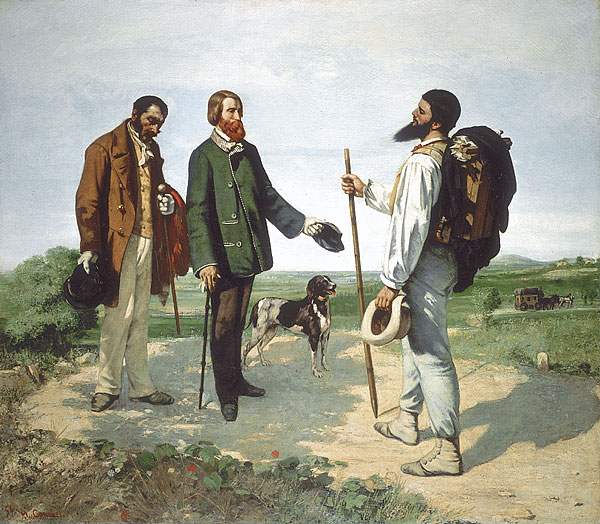Recent weeks have shown a spectacular change in our sense of community, a return to forgotten values and the introduction of new ones. Will any of this last?

In 1989, my father was appointed Israel Government Radio’s correspondent in Washington DC, and my family left for a three year sojourn in America. It was very clear then which country we were leaving and to which country we were going. We regarded Israel as “Communityland,” a place where people were involved in one another’s lives, often excessively. The land awaiting us across the sea, on the other hand, was said to be “Alienationland.” Horror stories described the States as a place where people get stabbed in the streets and then left to bleed to death, as the masses of passersby ignore them.
It wasn’t all that bad, of course, but differences in social dynamics between Israel and the States were noticable indeed, especially in neighbor-to-neighbor relations. In Israel we knew every family that lived in out apartment block and were in touch with them all. In Rockville, MD, respect for privacy meant leaving the neighbors be. Only one family on the block maintained a warm relationship with us and this relationship lasts to this day. Three years later, when we returned to these sun-scorched shores, things seemed to have changed in Communityland. Indeed, while we were away, it had become noticably less community-oriented. We shrugged and blamed “Americanization,” thinking it inevitable.
Our shrugging ended this summer. The current “tent protests” sweeping across Israel, demanding a welfare state and regulation to restrain the country’s capitalist policies, are also driven by the faint memory of different, indeed helathier, social dynamics, those which preceded the coming of commercial television to Israel in the early 90s, the implementation of capitalist policies that had been charted in the 80s, and the general shift of mentality that has been experienced ever since.
This week’s Haaretz book review features a review of Amir Ben-Porat’s book, How Israel Turned Capitalist. In his review, critic Yuval Elbashan qoutes a certain long-time social activist he ran into at the Rothschild Boulevard tent city. “I walk around here and the tears just keep flowing from my eyes,” she told him. “I feel that at least for a few weeks we got back the kind of society we once had here, the society that was created by my parents, the founding generation, a socialist society. The middle generation, our generation, kept quiet, and the young ones here say what we did not dare say for decades now: that we need to make this country once more what it used to be.”
Reading such words, I think of another part of the world that experienced great economic changes since the early 90s: the east part of Germany. Anyone speaking with “Ossies” (former East Germans) in the years following the reunification, would have heard the same complaint: Yes, there are more products offered on supermarket shelves now, we can travel to the west and speak critically without fear and that is all wonderful, but people used to be closer to one another. They used to be kinder. It’s scary to watch them change.
Israel has most certainly become once again a kinder place this summer. Walking down Rothschild Blvd., the sense of generosity and courtesy is immense. Even before taking into account all the commodities being offered for free (food, entertainment, housing), the suspension of competition and the sweeping sense of togetherness in the struggle have rendered everyone more relaxed. People speak more gently, show more patience in listening to one another and mix with communities they have thus far treated with great suspicion. By taking our homes into the streets, we have become neighbors once more.
In the tent cities, the orthodox religious and the secular, Arabs and Jews, citizens and immigrants, blacks and whites, are all equal. Hassidic youths listen to the talks given on Rothschild Blvd. and the Mizrahi activists of Hatikvah neighborhood go to the joint Palestinian-Jewish tent city in Jaffa to show solidarity. A party spontaneously organized on behalf of an Ethiopian youth, arrested at south Tel-Aviv’s Levinsky tent city allegedly for crossing the street at a red light, became enormous within two hours of its announcement. It drew hundreds of diverse revelers who would have previously never heard of such an act of racial profiling or else would have read something about it and then let the stabbing victim bleed.
With our TV sets off and our minds set on bettering this place, lying to us has become more difficult. We have begun to recall now that we can be good to one another and grow together. It is growing more and more apparent that we can indeed bring the issue of the occupation into this circle of protests, that we are maturing into that. We are maturing, period.
Our proccess of maturing takes its inspiration from the things that happened in Alienationland long ago. When Israelis say that these times have a “summer of love” feel, this is a meaningful statement. The U.S. was on the brink of changing substantialy and then didn’t quite. Though its record stores were full of vintage psychadelia, Rockville of the late 80s was nearly unmarked by the deeper social aspects of 60s counterculture. The “big chill” had won.
While writing these words, Haaretz Online reports that Israeli police is preparing for a cue to forcibly remove the tent cities. Police chiefs foresee that the government and municipalities will use such a maneuver in order to help Israel “get its act together” and face the “scarier threat” of September’s UN vote on a Palestinian state. Sure enough, in order to support military action against the Palestinians this fall, we must again be isolated from one another. We must again forget the concept of change and concentrate on what we each perceive as our own individual good. How quickly can such a change be made to take place? Hopefully, not quickly enough.

